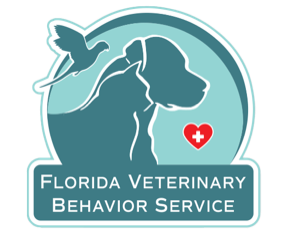We are often asked what happens at an appointment with one of our behavior doctors. Actually, it isn’t that much different than taking your pet to any other specialist such as a veterinary internist or dermatologist.
Before the appointment…
We will ask you to fill out a questionnaire and return it to us before your pet’s appointment.
At the assessment appointment…
The doctor will ask you some additional historical questions, talk to you about what is going on with your pet, your goals for your pet, the diagnosis, recommended laboratory testing, and the cost of treatment.
Generally, the doctor does a physical examination and if lab tests are indicated, those may be done at the time of the appointment. If your pet needs medications, those may be sent home at the time of the appointment or the doctor may wait until further testing is done. You and your primary care veterinarian will be sent a summary of the appointment with initial recommendations.
At the time of your pet’s initial assessment, our team will schedule a Behavioral Therapy Appointment with our technicians in line with the doctor’s recommendations so that the behavioral treatment plan can be implemented. Medical treatment alone is not generally effective in the treatment of emotional disorders in pets. Generally, behavioral treatments are necessary as well.
Behavioral Therapy Appointment…
behavioral therapy appointments are appointments with a technician. At these appointments, a comprehensive treatment plan is written down for you. Specific behavior modification skills designed to meet your pet’s needs are practiced and any medical treatments and medication changes are made if warranted.
These appointments are essential for the greatest likelihood of success in your pet’s treatment. They are a great opportunity for advancing your pet to the next steps in the treatment plan and troubleshooting challenges in the treatment plan in person. Before your pet’s treatment appointment, the doctor reviews your pet’s record, writes a treatment plan, and reviews the case with the technician. The treatment report is reviewed by the doctor before it is sent to you.
Commonly Seen and Successfully Treated Emotional Disorders In Dogs, Cats, Birds and Exotic Animals
Aggression
Cognitive Dysfunction (Dementia)
Leash Reactivity
Noise Phobia
Thunderstorm Phobia
Urine Marking
Separation Anxiety
Refractory Housetraining
Urination and Defecation outside of the litterbox
Feather damaging behavior
Compulsive behavior
Night Anxiety
Generalized Anxiety
Global Fears
Fly Snapping
Circling/Spinning
Does Your Pet Need A Board Certified Veterinary Behaviorist?
You may be wondering if your pet needs a board certified veterinary behaviorist or a trainer.
Emotional disorders such as those listed above and others have a physiological component. They are best treated by a board certified veterinary behaviorist. If your pet has unruly behaviors such as pulling on the leash without aggression, jumping on visitors, counter surfing or basic house training for example, your pet may be better served by seeing a qualified positive reinforcement dog trainer.
If your pet is young and is experiencing anxiety or aggression, he or she will be better served by seeing a board-certified veterinary behaviorist first to make sure that any treatments are started while your baby is developing, and most open to treatment and not after the problems have progressed.
